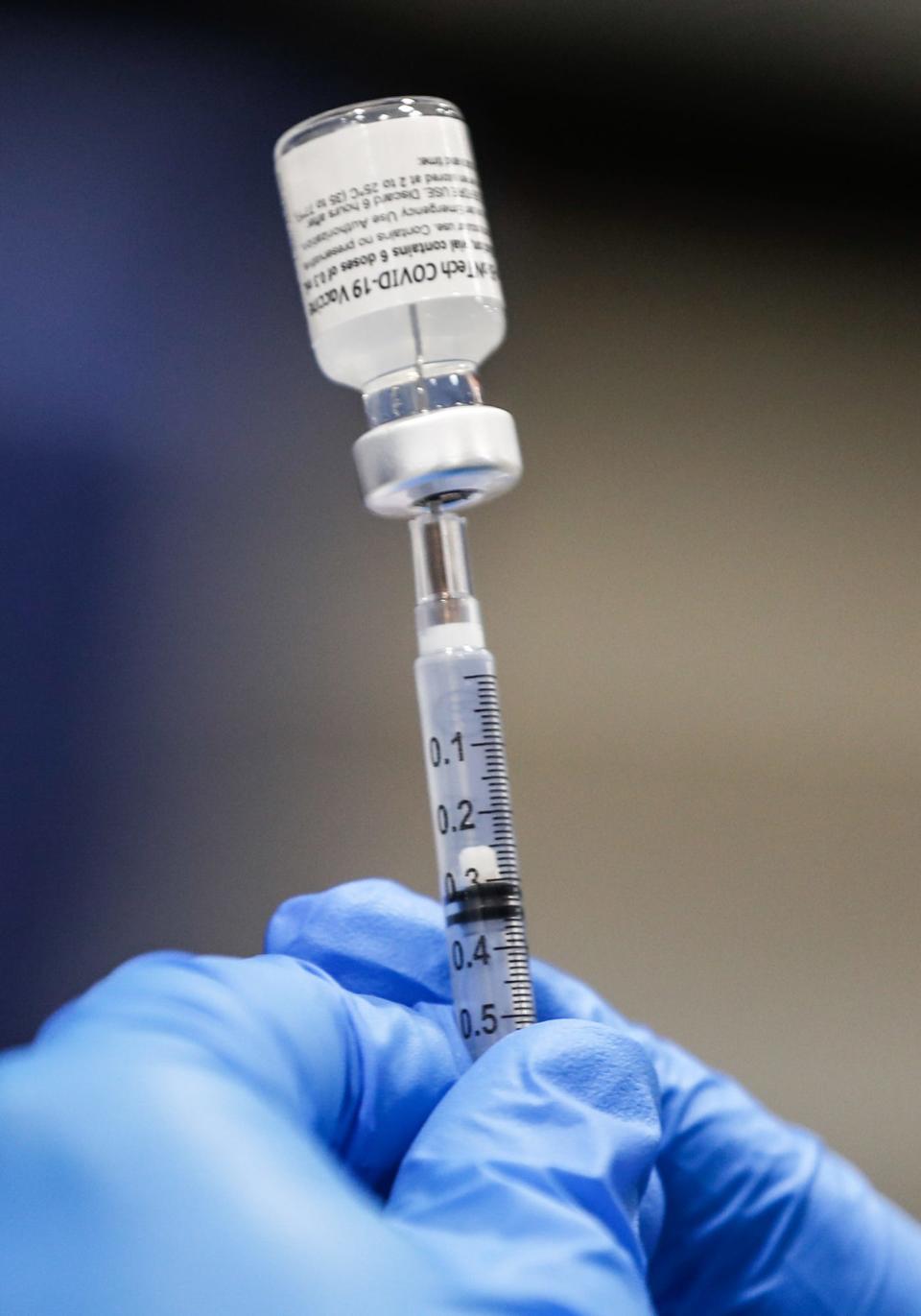Op/Ed: Use National Immunization Awareness Month to get current on vaccines, 'stay safe'
The COVID-19 pandemic has heightened discussions about vaccines of all kinds. Now that people of all ages are eligible to receive the COVID-19 vaccine, there have been many questions about their effects, interactions with other vaccines and the need to get vaccinated at all. As flu season approaches and during this National Immunization Awareness Month, take charge of your health by understanding how vaccines work and the benefits they provide for your overall well-being.
Vaccines: How they work and types
Vaccines help strengthen the immune response of your body. Some vaccines, such as the flu shot, contain small amounts of active or inactive virus or toxin that trigger an immune response in the body and help build immunity. Others, such as COVID-19 mRNA vaccines, do not introduce virus into the body and instead teach your cells to create specific proteins that initiate an immune response against specific illnesses.

More:How to register for the monkeypox vaccine in Marion County
Both traditional and mRNA vaccines have been widely researched and tested. The medical community is excited about advancements in mRNA vaccines because they can be developed more quickly and pose no risk of causing sickness in the vaccinated person because they do not contain live virus.
Should you get vaccinated and boosted against COVID-19?
Now that the pandemic has gone on for more than two years and some aspects of life have gone back to normal, many people are wondering whether they still need to get vaccinated or boosted. The short answer: yes. The Centers for Disease Control and Prevention have approved the COVID-19 vaccine for all people ages 6 months and older, and recommend at least one or two boosters depending on age and health status. It’s important to not only get vaccinated to protect yourself against the COVID-19 virus, but also stay up to date with boosters to ensure maximum protection.
More:Kids ages 5 to 11 now eligible for COVID-19 booster in Indiana
Many common myths about the vaccine are in circulation and it’s important to heed public health professionals and reputable sources when deciding to get vaccinated. These professionals have years of experience and understand the research that goes into recommending and releasing a vaccine.
The flu and other vaccines
Most people receive numerous vaccines during their lifetime. You likely received several vaccines as a child and continue to receive boosters for certain vaccines at routine intervals, such as the tetanus booster, which is recommended every 10 years. Many routine vaccines can be given at the same time as other vaccines, and the flu shot is no different. You can safely receive the flu shot at the same time as your COVID-19 vaccination or booster. Talk with your doctor about which vaccines are beneficial to you and when you should get them to make sure you’re protected, especially as flu season approaches.
Helping yourself and others
One misconception is that getting vaccinated is not as important if you’re generally in good health. The COVID-19 pandemic has shown us that viruses can infect and severely weaken healthy people. One only has to think back to the severe illness that occurred early in the pandemic to see what a difference vaccines have made in curbing hospitalizations and preventing deaths.

More:'I was so stupid': Anderson woman refused the vaccine and almost died of COVID-19
Whether your primary concern is your own health or the health of those around you, immunizations play a critical role in maintaining the health of our communities, during a pandemic and beyond. During National Immunization Awareness Month, take time to check in with your doctor and make sure you’re up to date on your recommended vaccines so you can keep yourself and your loved ones safe.
Dr. Kurt Merkelz is senior vice president and chief medical officer for Compassus, a leading national provider of home-based care services including locations in Indianapolis, Muncie and Kokomo.
This article originally appeared on Indianapolis Star: National Immunization Awareness Month highlights Hoosier health

